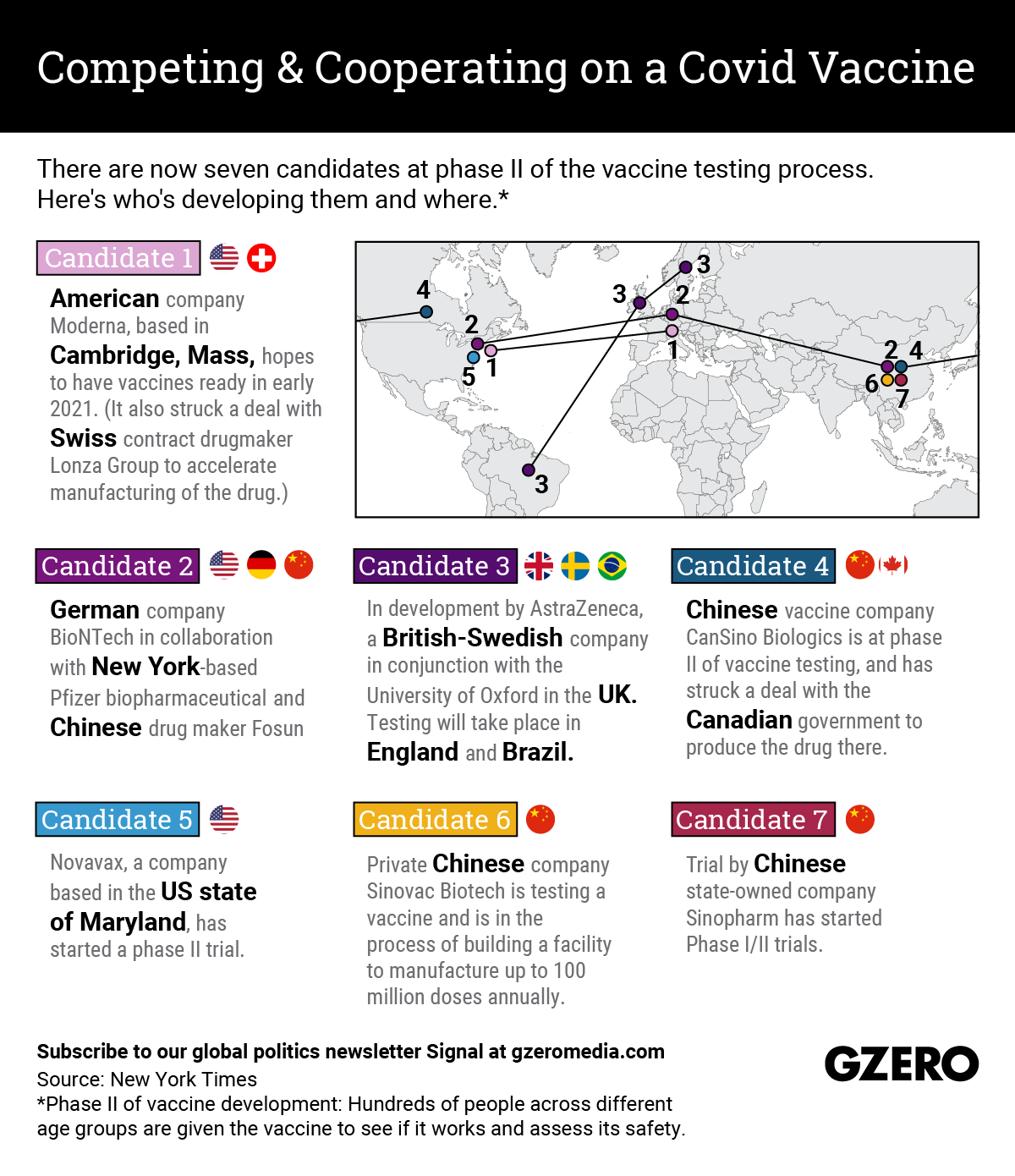The Graphic Truth: Competing and cooperating on a COVID-19 vaccine
The global race is on to develop a vaccine against COVID-19. While it usually takes many years to develop and widely distribute vaccines, scientists around the world are now trying to get one ready within the next year — an unprecedented time frame.
The race has generated fierce competition among countries, as everyone wants to develop a vaccine on their home turf first, not only for prestige, but also to get their citizens at the front of the line for the shots when they are available. Still, while the scientific world is now rife with geopolitical rivalries over the COVID-19 vaccine, there's also a lot of international collaboration going on behind the scenes. Here's a look at the vaccines currently in Phase II of the clinical trial process, meaning they are being tested on hundreds of people of various age groups to determine their effectiveness and safety. If they pass this stage they move to wider testing in Phase III, the final step before approval.
